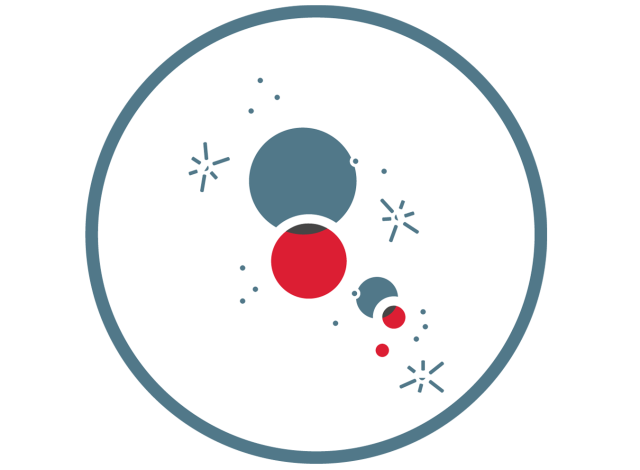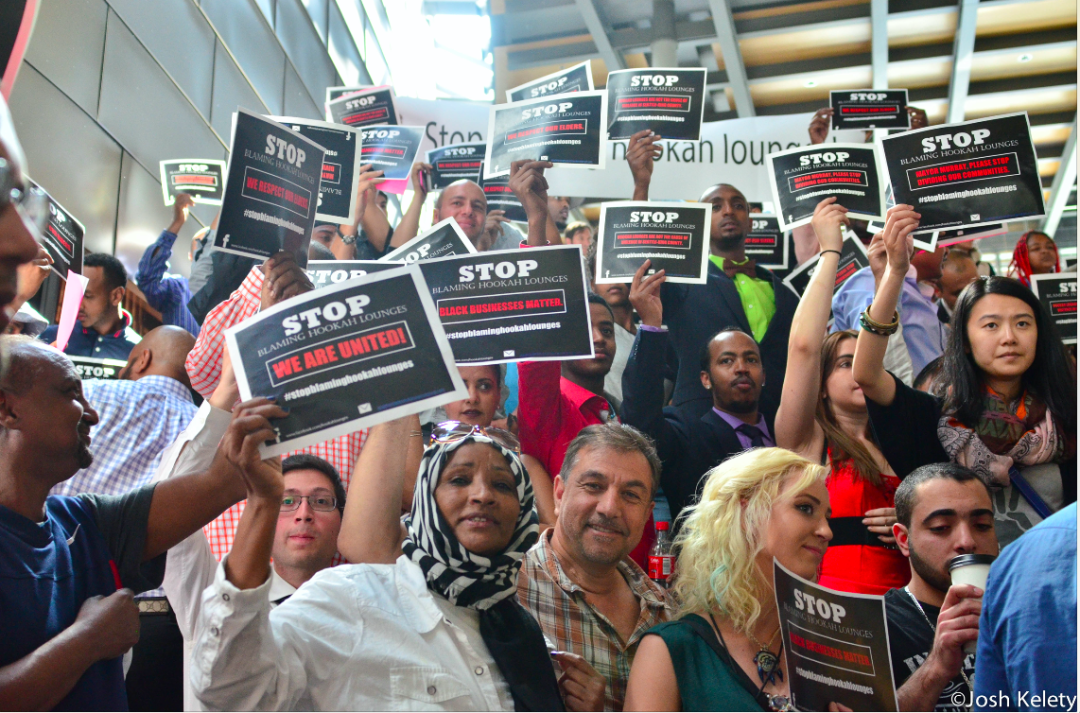Friday Likes & Dislikes: Hookah Edition
Yesterday afternoon, in the latest chapter of the hookah lounge story, as mayor Ed Murray backed off his hardline stance and took a more politic approach, members of the mayor’s policy staff and the Office of Economic Development (including new OED head, Brian Surratt) met with Seattle’s hookah lounge owners and their lawyer to discuss ways the businesses could come into compliance with the state indoor smoking ban and how to move forward.
After the meeting, I met with the hookah lounge owners and their attorney, Russell Knight of Tacoma-based Smith Alling law firm, to get a rundown on how the meeting went. While some progress was made (the mayor appears to be dropping the spin that hookah lounges are crime “magnets,” and he's temporarily suspending any enforcement actions, dropping an August 31 closure date in exchange for a mid-September date of resolving the conflict), it seems there's still a heated legal battle. There's disagreement about the definitions of “public place” and “places of employment” (state law bans indoor smoking in both areas) and whether hookah lounges fall into either of those categories.
Knight told me that while the mayor’s office is relying on the Office of Civil Right’s racial equity analysis of the crackdown to interpret the legal definitions in the indoor smoking ban in relation to hookah lounges—as I reported yesterday, the city's civil rights office is, at the mayor's belated request, putting his proposed crackdown through a social justice lens to get a handle on competing voices in the East African immigrant community—that analysis won’t be completed until after a new mid-September deadline that the businesses have to come into compliance. In other words, businesses won’t get a chance to react to the results of the analysis before having to shut down (Knight added that he and his clients will be appealing the overall enforcement action before the city hearing examiner).
For today's PubliCola Friday LIKES & DISLIKES, I asked Knight to assess yesterday's meeting. —Josh Kelety

Private, members-only hookah lounges have been operating in Seattle for quite some time. Their primarily East African and Middle Eastern membership enjoy a gathering space for people to come together for a social and cultural benefit and to smoke hookah away from their homes or others who do not want to be around the smoke. The private clubs do not fall under the net of the ban on smoking in public places because they are neither a “public place” nor "place of employment.”
While the Seattle–King County Department of Public Health periodically issued notices of violation on a case-by-case basis, there had not been any coordinated effort to shut down Seattle’s 11 hookah lounges. Until now.
Following the fatal shooting of community leader Donnie Chin on July 23, 2015, mayor Ed Murray needed a scapegoat. The homicide occurred in the International District, near many businesses and organizations. However, King’s Hookah Lounge, which was closed at the time of the shooting and approximately two blocks away took the blame along with all other hookah lounges in the city despite no actual connection to the homicide. On August 6, the mayor’s office issued a letter to each hookah lounge indicating they would be required to shut down by August 31.

Along with the coalition of Seattle hookah lounge owners, including Medina Hookah Lounge, King’s Hookah Lounge, Aladdin Hookah Lounge, Cloud 9 Hookah Lounge, Casa Blanca Hookah Lounge, Da Spot, Sahara Hookah Lounge, Havana Lounge, and Seattle Hookah Lounge, I LIKE that as a result of their organization and legal action, the mayor’s office has reversed its previous demand that all hookah lounges in Seattle shut down by August 31 in order to avoid facing “criminal penalties.”
However, despite the mayor’s office reversing its previous (and unsupportable) stance that all hookah lounges had to close by a date certain, I DISLIKE that David Mendoza of the mayor’s office [Mendoza is a Murray policy staffer who previously worked on medical marijuana regs] maintains that inspections and additional request to shut down will resume in mid-September before the results of the mayor’s own task force are available to assist in defining a “public places” or “places of employment” which are both places where smoking is prohibited under the Smoking in Public Places Act.
I LIKE that, with respect to avoiding the “public place” restriction, there are viable business models operating with approval of the Seattle–King County Department of Public Health. Seattle’s two cigar lounges—the Vertigo Club and Mercury Lounge—are private, members-only clubs which allow smoking. Members must pay an annual fee and must be referred by an existing member. This model—at least with respect to cigar clubs—has not been targeted by Public Health.
While this model could have universal application, so far it has not seen universal enforcement. I DISLIKE that hookah lounges which operate with substantially the same restriction—private members only clubs in which members pay an annual fee and must be referred by an existing member to join—receive unequal scrutiny from Public Health. In fact, most hookah lounges are more private than the above two cigar lounges because hookah lounges do not advertise. Their membership comes almost exclusively from word of mouth.
I LIKE that mayor Ed Murray is now attempting to walk back its wholly unsupported statement that “smoking lounges attract and sustain illegal, violent activity.” However, I DISLIKE that despite dropping the charged language associating hookah lounges with crime, and despite giving the green light to cigar lounges, David Mendoza of the mayor’s office maintains there is “likely no viable business model” for Seattle’s 11 hookah lounges, all of which are owned and operated by immigrants of East African or Middle-Eastern dissent.
Despite attempts to work with us, the mayor and Public Health may ultimately not agree with private hookah lounge owners on the legality of their private clubs. That’s okay, because I LIKE that ultimately private hookah lounges will get their day in court to demonstrate they are legitimate private clubs that operate within the bounds of the Smoking in Public Places Act, and that they provide an important cultural gathering place and contribute to the richness and diversity of the community.
Russell Knight is a business attorney who represents Medina Hookah Lounge, King’s Hookah Lounge, Aladdin Hookah Lounge, Cloud 9 Hookah Lounge, Casa Blanca Hookah Lounge, Da Spot, Sahara Hookah Lounge, Havana Lounge, and Seattle Hookah Lounge.




